
Business
11:14, 14-Aug-2017
China's sharing economy stalls after glut of unwanted services
CGTN
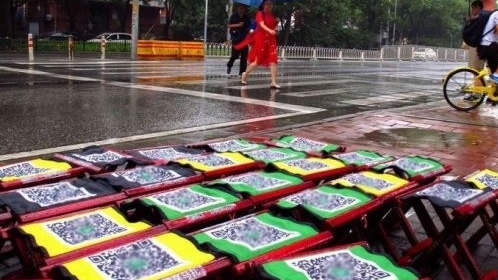
Think all objects can benefit people through the sharing economy model? Then think again.
On Sunday, the latest scan-and-go item was unveiled in Beijing; a folding stool. They were placed at bus stations, with QR codes printed on the seats for users to scan and make themselves comfortable while waiting for public transport.
However, by the end of the day, most of the stools had disappeared. It transpired that scanning the QR code did not charge customers to take a seat, nor were they required to fill out even basic contact information.
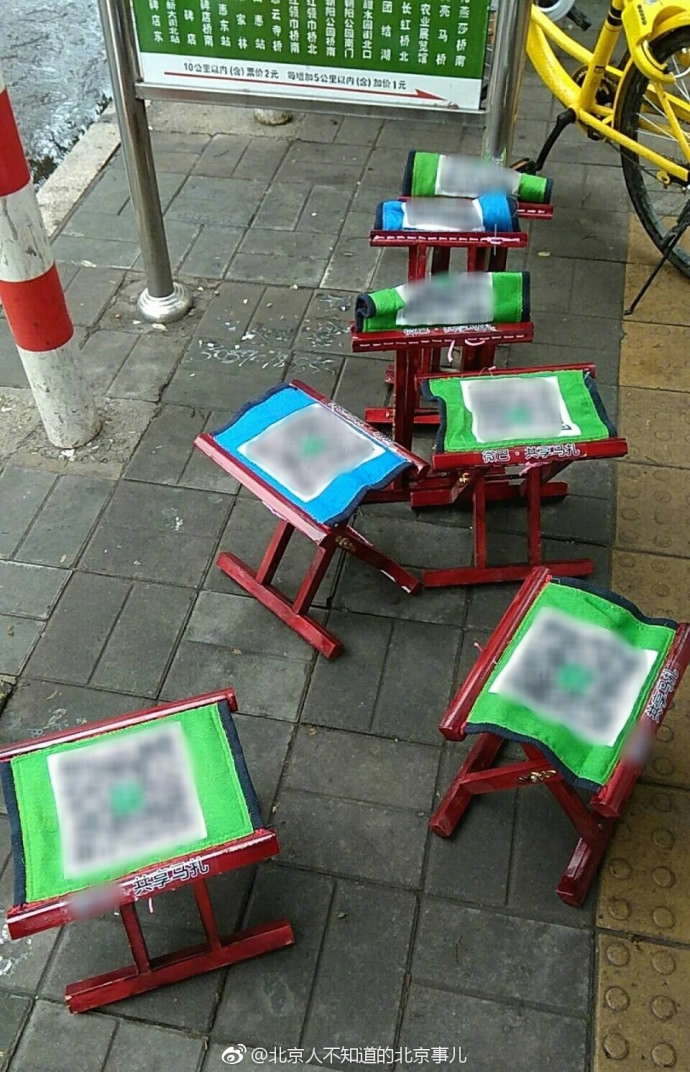
Photo via Weibo @Beijingnewsforlocals
Photo via Weibo @Beijingnewsforlocals
Reaction to the rent-a-stools has been decidedly mixed. Some praised their convenience, while others complained about them cluttering up the sidewalk.
However, the general response on China's Twitter-like platform Weibo was that the concept of the stools was more amusing than functional.
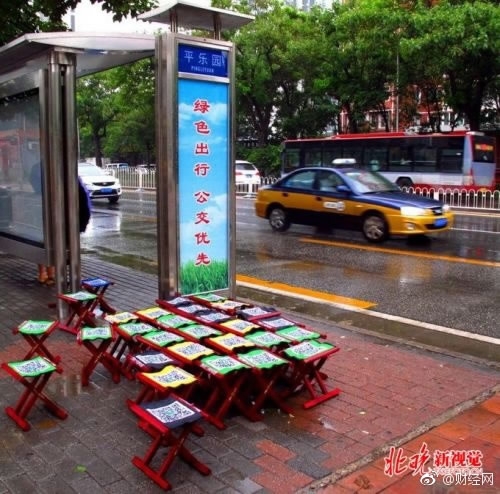
Photo via Beijing Evening Post
Photo via Beijing Evening Post
“Will it bite or burn my bottom if I sit down without scanning?” one web user joked, “Or will it not unfold unless I scan the code? I don't get the point!”
“It might burn your conscientiousness if you don’t scan,” quipped one netizen in response.
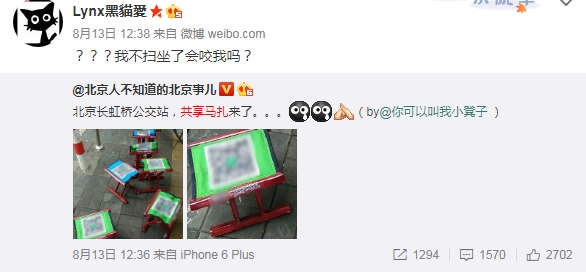
Screenshot via Weibo
Screenshot via Weibo
In reply to the theft of the stools, the business offering the service said it had allowed for the fact that a certain amount would be taken away, saying this was done partly for publicity and partly to benefit the public.
But did the service really bring any advantages to the local community?
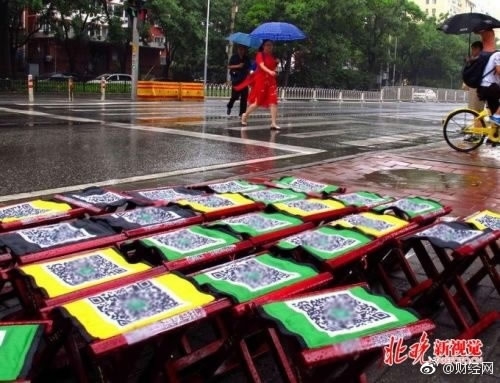
Photo via Beijing Evening Post
Photo via Beijing Evening Post
According to Zhu Wei from the China University of Political Science and Law (CUPL), the folding stools don't strictly fit into the sharing economy model as the initiative was mostly a promotional campaign.
Zhu said the sharing economy is usually defined by two approaches: P2P (peer-to-peer) business such as ride-hailing and broadly arranged sharing business offering certain products or services, such as bike-sharing.
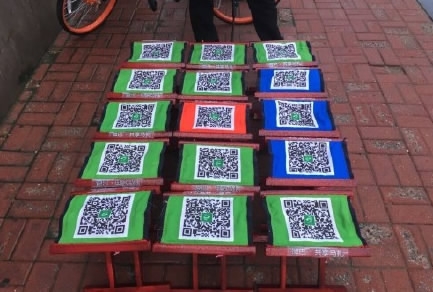
Photo via Weibo @Beijingnewsforlocals
Photo via Weibo @Beijingnewsforlocals
According to Zhu Wei, deputy chief of communication research center at China University of Political Science and Law (CUPL), the folding stools do not fit a sharing economic item in strict terms. The practice was mostly a promotional campaign.
According to Zhu, small businesses are now abusing the concept, giving commercial activities the “sharing” tag in order to promote their brands.
However, Zhu said that whether these initiatives can be categorized as sharing, any commercial activity “must abide by commercial law...and should be certified.”
“All content that a QR code redirects to should be reviewed by the authorities,” he said.
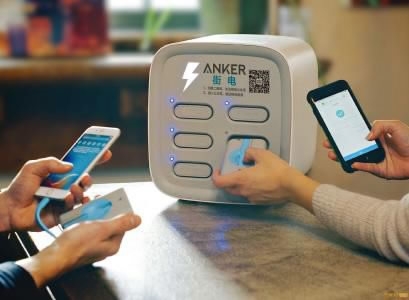
Photo via Internet
Photo via Internet
China’s major cities have seen many sharing items appear on the market, including capsule hotels and luxury cars, as well as portable objects and devices like umbrellas and cellphone charging packs.
Some have become sensational hits with the public, such as the various rent-a-bike schemes, while others, like umbrellas and basketballs, have failed to resonate with customers.
(With input from Beijing Morning Post)

SITEMAP
Copyright © 2018 CGTN. Beijing ICP prepared NO.16065310-3
Copyright © 2018 CGTN. Beijing ICP prepared NO.16065310-3